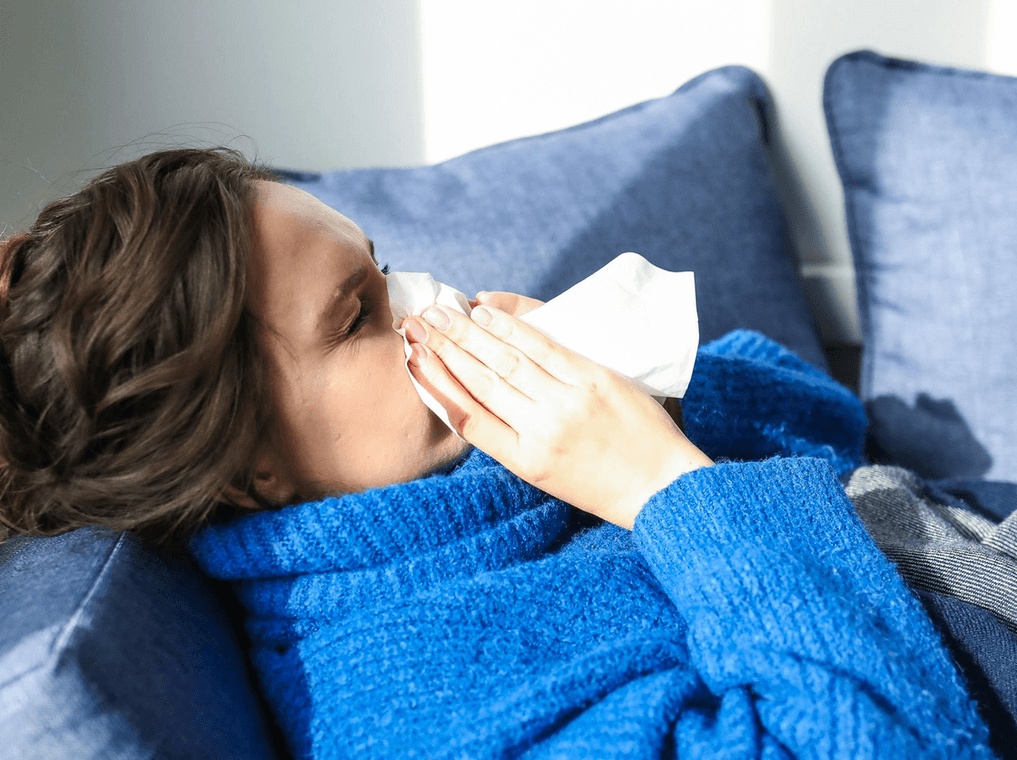Cold and flu season doesn’t wait for anyone. It sweeps through homes swiftly, especially when school-age kids bring back more than just backpacks, or when adults pick up germs at work. With seasonal flu infecting as much as 20% of the U.S. population each year, and sending up to 710,000 people to the hospital with complications, protecting your family demands more than luck: it takes prevention, smart daily habits, and knowing when to reach for help.
Read on to learn about the most common concerns families face during flu season and find clear, practical ways to keep everyone well from the best doctor in East Brunswick.
How to Prevent Cold and Flu Viruses From Spreading
One of the best ways to keep cold and flu viruses from spreading is by focusing on small, consistent habits that protect everyone:
- Handwashing: Encourage your family to wash with soap and warm water for at least 20 seconds, especially after school, work, or being in public places.
- Cover the cough: Since kids are often the first to bring germs home, teach them to cover their coughs and sneezes with a tissue or the inside of their elbow, rather than their hands, which can easily spread viruses to everything they touch.
- Regularly disinfect common surfaces: It is also helpful to disinfect high-touch surfaces daily, such as doorknobs, phones, and remote controls, as these items are frequently handled and can spread germs from one person to another.
Should the Whole Family Get a Flu Shot?
Yes, the whole family should get a flu vaccine, also known as the flu shot, with very few exceptions. Health experts recommend annual flu vaccines for everyone six months and older, unless a doctor advises otherwise based on medical history. It’s essential to remember that even if someone still contracts the flu after being vaccinated, the shot can significantly reduce the severity of the illness and help prevent serious complications, such as pneumonia or hospitalization.
To get the most protection, it’s best to schedule vaccines early in the season, ideally in September or October, so your body has time to build immunity before flu activity peaks. Making flu shots a family routine not only protects each person but also reduces the chances of spreading the virus to vulnerable loved ones, like grandparents or babies who are too young to be fully protected.
What Foods and Drinks Boost the Immune System?
What your family eats and drinks can make a difference in how well their bodies fight off colds and flu. Focus on filling meals and snacks with nutrient-rich foods like citrus fruits for vitamin C, leafy greens for antioxidants, yogurt for probiotics, and lean proteins to support muscle repair and immune function.
Just as important, keep everyone hydrated. Plenty of water and soothing herbal teas help flush out toxins, keep airways moist, and make it easier for the body to fight infections. On the other hand, try to limit sugary snacks and processed foods, as excessive sugar can weaken the immune system and make it harder to recover from illness.
How to Know if it’s a Cold, the Flu, or Something More Serious
It’s not always easy to tell if you’re dealing with a simple cold, the flu, or something that requires medical attention, but paying attention to the type and intensity of symptoms can help:
- Cold symptoms usually include a runny nose, sneezing, and congestion that make you feel sluggish, but still allow you to get through the day.
- Flu symptoms hit harder, with sudden high fever, body aches, chills, and extreme fatigue that keep you in bed.
In either case, if symptoms become more severe, such as a high fever lasting longer than three days, trouble breathing, or signs of dehydration like dizziness and a lack of urine, it’s important to schedule a sick visit with a primary care doctor.
What to Do When You or Your Kids Do Get Sick
When someone in the family does get sick, the best support you can give is helping their body rest and recover. For both kids and adults, getting plenty of extra sleep is important since rest is one of the most powerful tools for healing. Keep them nourished and hydrated with warm soups, clear fluids, and soothing remedies, such as cough drops or honey for sore throats. To make breathing easier and relieve congestion, run a humidifier in the bedroom to add moisture to the air.
When Should You Keep Kids Home From School or Daycare?
If your child has a fever over 100.4°F or is dealing with vomiting or diarrhea, they should stay home until they’ve been symptom-free for at least 24 hours without medication. Every school or daycare may have slightly different guidelines, so it’s always a good idea to check and follow their specific sick policy before sending your child back.
Where to Find the Best Doctor in East Brunswick and Central Jersey
When illness interrupts your routine, having a trusted doctor who truly listens makes all the difference. At Hyatt Health & Wellness, we make sick visits in East Brunswick simple, supportive, and effective so you can get back to feeling like yourself again. Dr. Gayon Hyatt, our board-certified family medicine physician, takes time to understand not just your symptoms but your overall health, creating a care plan that fits your needs and lifestyle.
We treat everything from colds and the flu to minor injuries and infections with the same level of compassion and thoroughness you’d expect for your own family by combining prompt treatment with a focus on prevention and patient education. With Dr. Hyatt’s warm, approachable style and our commitment to comprehensive care, we’re here to support you and your family at every stage of life.

